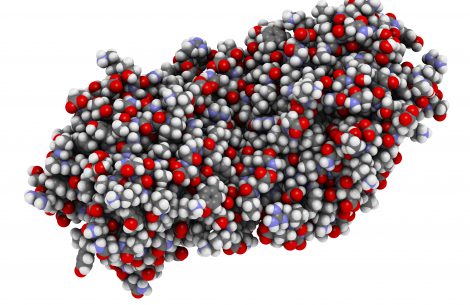There’s a new trend in the lectin free diet. Lectins are nitrogen-rich proteins found in beans, legumes, some vegetables, and whole grains. In plants, scientists think lectins help to keep insects away.
Lectins Complicated Relationship with Humans
In humans, lectins have a complicated relationship because some lectins are toxic and others are benign and beneficial. The helpful lectins may encourage cells to cooperate, assist red blood cells to group together, and help the digestive tracts make good bacteria.
Some research suggests lectins may help identify cancer cells and slow their multiplication rate. Other research suggests they may have use combating bacteria, fungi, and viral related conditions.
However, lectins are also considered an antinutrient because they hinder the assimilation of some nutrients in the body. They can also cause digestion issues for people sensitive to them. Also, lectin containing foods when undercooked can cause upset stomachs when eaten.
Lectin-containing red kidney beans when undercooked can lead to severe nausea, vomiting, and diarrhea. And according to the Food and Drug Administration (FDA), it only takes four raw kidney beans to cause this reaction.
Some scientist and researchers link lectins to chronic inflammation and autoimmune diseases, such as diabetes, celiac, and rheumatoid arthritis.
The relationship to lectins and their role in the health is even more complicated: Some early research showed that lectins in wheat germ provided a way for bacteria and toxins to cross the gut barrier. But at the same time, whole grains have antioxidants that aid in the fight against inflammation.
The Lectin-Free Diet
The lectin-free diet became popular after former heart surgeon, Steven Gundry, MD, began promoting it. Dr. Gundry believes lectins are harmful and are the primary health danger in the American diet.
He and other proponents of a lectin-free diet say that they encourage inflammation and can cause chronic health issues. According to Dr. Gundry these lectin containing foods should be avoided:
- All legumes (peas, lentils, peanuts, and beans)
- Squash
- Fruits except for in-season fruit
- Grains (wheat, barley, etc.) Processed white flour products are allowed
- Nightshade vegetables (tomatoes, potatoes, eggplant, and peppers)
These are some of the foods Dr. Gundry suggests eating:
- A2 Milk (milk that contains only A2 proteins)
- Asparagus
- Avocado
- Celery
- Cooked sweet potatoes
- Garlic and onion
- Leafy, green vegetables
- Mushrooms
- Olives
- Pasture-raised meats
As you can see, the diet is very restrictive which can make it hard for some to follow especially vegans and vegetarians. Vegans and vegetarians need sources of proteins which they can get from foods like beans and legumes.
What Other Health Experts Say about the Lectin-Free Diet
Many nutritionists point out that the problem with the bad press regarding lectins is that the promoters of a lectin free diet are lumping all lectins together, saying they are alike when they are not.
Registered dietician Cara Rosenbloom in an article in the Washington Post gives the comparison to mushrooms as an example: “Saying all lectins are poison is akin to saying that you shouldn’t eat button mushrooms because some foraged mushrooms are toxic. It makes no sense.”
Also, the claim that lectins are a health threat to Americans contributing to chronic diseases and inflammation are exaggerated because Americans don’t consume a lot of lectins.
Because there are many types of lectins, scientists are still figuring out what and what they don’t do. In addition, no food classifications list the amounts and types of lectins in each food and how they respond in the body.
Rosenbloom also points out that lectin studies have been done with isolated lectins and not whole foods. The research has also been done in test tubes and with animal studies and not humans. Without human trials, using whole food with lectin, Rosenbloom asks, “So how can these online health gurus conclusively link lectin-containing foods to certain health issues…?”
Cooking Lectin-Containing Foods
Lectins can be destroyed or reduced with proper cooking. For example, boil dry beans for 30 minutes. Also, soaking dry beans and slow cooking them does not eradicate lectins. If beans are prepared correctly, they have low levels of lectin and are safe to eat. Boiling other lectin-containing foods, such as rice, quinoa, and barley also destroys most lectins as does fermentation and sprouting.
Some people do have digestion issues and are sensitive to beans and some grains and need to avoid them. However, according to Rosenbloom, the level of lectins in foods most people eat is not high enough to be a health concern.
When altering your diet, especially drastically, it is best to speak with your health care provider.
References:
- Rosenbloom, Cara. Going ‘lectin-free” is the latest pseudoscience diet fad (July 6, 2017). Retrieved from https://www.washingtonpost.com/lifestyle/wellness/going-lectin-free-is-the-latest-pseudoscience-diet-fad/2017/07/05/45382462-5b4e-11e7-a9f6-7c3296387341_story.html?utm_term=.c21f74156605.
- Ware, Megan, RDN, LD. Everything you need to know about the lectin-free diet (October 3, 2017). Retrieved from https://www.medicalnewstoday.com/articles/319593.php
- Whelan, Corey. What Is a Lectin-Free Diet? (August 21, 2017). Retrieved from https://www.healthline.com/health/lectin-free-diet#risks.
- Rosenbloom, Cara, Going ‘lectin-free” is the latest pseudoscience diet fad, (July 6, 2017. Web.

